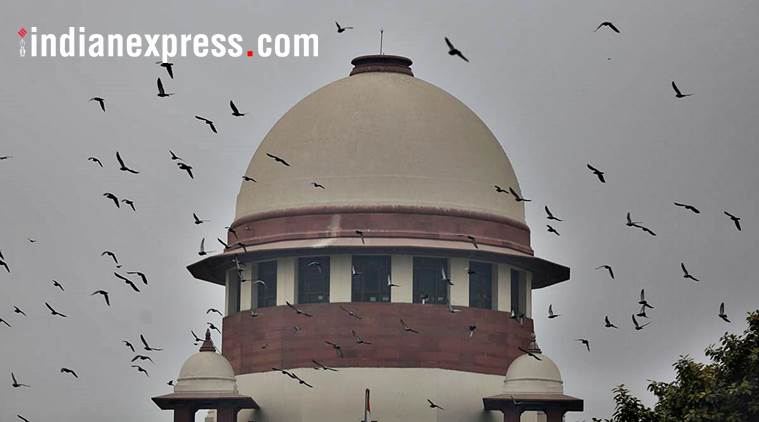Stay updated with the latest - Click here to follow us on Instagram
‘Vishakha guidelines violation reason for delay in Karnataka judge’s elevation’
The discreet inquiry was conducted after a lady judge levelled harassment at workplace charges against the judge.
 The Supreme Court of India (Express Photo by Tashi Tobgyal)
The Supreme Court of India (Express Photo by Tashi Tobgyal)
Apprehensions that a discreet inquiry, which resulted in a clean chit to a district and sessions judge, did not comply with the Vishakha guidelines have emerged as one of the main reasons why the government has been sitting on the Supreme Court Collegium’s recommendation to elevate the judge to Karnataka High Court, according to government sources.
The discreet inquiry was conducted after a lady judge levelled harassment at workplace charges against the judge.
“The four-page discreet inquiry report did not place on record any material to suggest that the inquiry into the harassment complaints by the unmarried lady judge followed the Vishakha guidelines laid down by Supreme Court. It is not even clear whether the said discreet inquiry was conducted by a lady judge,” a government source told The Indian Express about the latest flashpoint between the judiciary and the executive over the government stalling the elevation of a district and sessions judge to the High Court.
The Supreme Court Collegium had reiterated the elevation of district and sessions judge P Krishna Bhat in April 2017 after the then Chief Justice of Karnataka High Court called the complaints against him “incorrect and concocted” on the basis of the discreet inquiry.
“There was nothing in that inquiry report to suggest appropriate guidelines to deal with harassment were followed,” said a government source.
“Courts are a workplace too. And the courts are not above the well laid out laws and regulations for inquiring into the complaints of harassment on the basis of gender,” said another government source.
The impression of the government stalling the elevation of Bhat to the High Court despite a reiteration by the Supreme Court Collegium has emerged as another bone of contention between the government and the Supreme Court Collegium.
Justice J Chelameswar, second most senior judge of the country, recently wrote to Chief Justice of India Dipak Misra, advocating a full court on the judicial side to discuss the alleged selective manner of the government accepting recommendations of the Supreme Court Collegium for appointment of judges to high courts.
Justice Chelameswar’s letter is learnt to have referred to Bhat’s case, whose name was first recommended for elevation to High Court by the Supreme Court Collegium in August 2016 and reiterated in April 2017.
Meanwhile, a request for fresh inquiry against the judge ostensibly made by the Union Law Ministry to the High Court of Karnataka has emerged as another bone of contention between the government and judiciary. The judiciary is frowning upon the ministry for bypassing the Chief Justice of India and communicating directly with the High Court for the inquiry.
Government sources, however, said the communication was a “routine” forwarding of complaint by the lady judge to the President and Prime Minister. Sources said the lady judge made a fresh complaint to the President and Prime Minister after learning that the Supreme Court Collegium had reiterated its recommendation to elevate judge Bhat. A government source said the Law Ministry only forwarded this fresh complaint — with no specific direction — and it was left to the Chief Justice of the Karnataka High Court to take “action as appropriate”.







